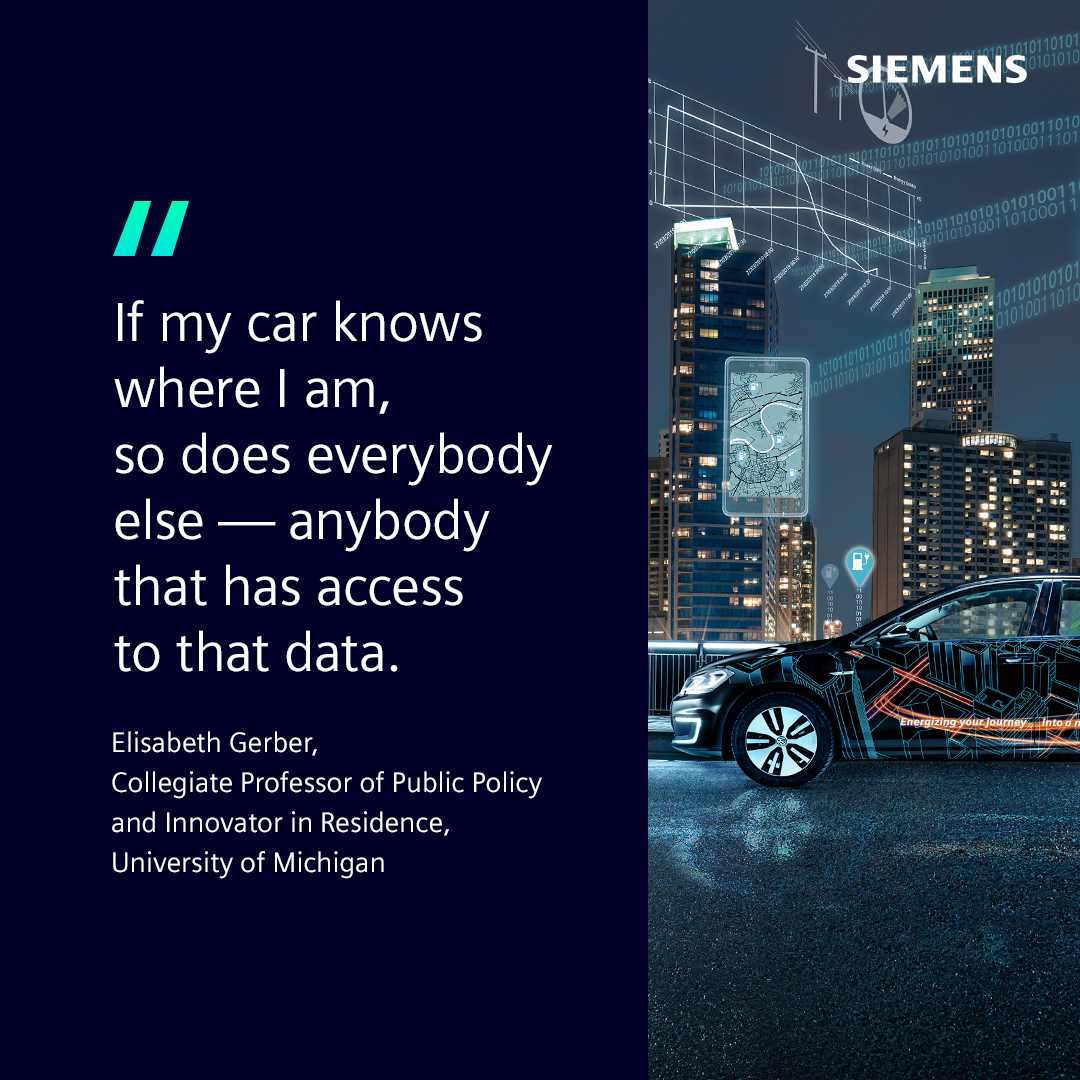The True Cost of Going Electric

Today, most of us think that electric vehicles may be a key factor in helping to free ourselves from our reliance on fossil fuels. What does the phrase “electric vehicles” bring to mind for you?
What technology, electrification, and automation complications do EVs bring? How can we generate electricity to match the massive increase in electric vehicles? What are autonomous vehicles’ challenging data safety, ethical, and legal issues? What happens to those communities if we no longer use oil and gas in our cars?
On this episode of the Innovation in the Classroom, our host Jen Bradford sits down with Liz Gerber, Jack L. Walker, Jr. Collegiate Professor of Public Policy and Innovator-in-residence at the University of Michigan, and Founder of ViewPoint Educational Technologies. Liz and Jen will discuss the massive open online course – People, Technology, and the Future of Mobility – a new course taught at the university.
People, Technology, and the Future of Mobility
The course aims to integrate an understanding of the technical aspect of electric vehicles with an exploration of possible solutions to the technology’s lesser discussed impacts. The course shows how technologies, electrification, and automation combine to transform the mobility sector. Liz and the University of Michigan are collaborating with Siemens and the University of Michigan to facilitate the course that may help solve many societal, social, and economic complications around EVs. Partnering with Siemens helped learners get an industry perspective on how these technologies reach a broader audience outside the university.
I think it’s really valuable to notice the breadth of Siemens’ work across technologies and your ability to be on the cutting edge of lots of different kinds of technologies, and so you make such a great partner to the university broadly.
– Liz Gerber
Benefits and Concerns
One of the most benefits of EV integration is its obvious climate benefits. However, many policies and infrastructure must change to achieve those environmental benefits. To reap those benefits, we should convert our electricity-generating systems to renewables and other less carbon-based technologies. Thus, our policies need to change to go electric.
Data security is another primary concern about autonomous vehicles. Autonomous vehicles must operate on a lot of data to build sensors and navigations. People may share location information, but autonomous vehicles need sufficient data to operate safely and stay connected.
On the one hand, autonomous vehicles maybe much safer. On the other hand, people have to program the vehicles to make interesting decisions.
– Liz Gerber
Economic and Social Impact of Going EV
Many communities worldwide depend entirely on the fossil foil, oil, and gas industry; as the world transitions to electric vehicles and autonomous driving, the resource and economic systems that these societies rely on will be disrupted. However, new opportunities include jobs in producing electricity, developing materials and components for electric vehicles, and computer programming at all levels to support autonomous vehicles.
Tune into the full episode to learn more about the new online course and how switching to EV will affect our future habits, economies, and societies. To learn more about Liz’s People, Technology, and the Future of Mobility course, visit the Michigan Online Future of Work Academy. Stay tuned to Innovation In The Classroom and subscribe to the series.

Engineering the Future Workforce
Engineering the Future Workforce explores emerging and best practices that are empowering the next generation of engineering talent. The series will showcase conversations with leading voices from academia and industry who are committed to improving learners’ digital skillset and mindset to accelerate innovation.


